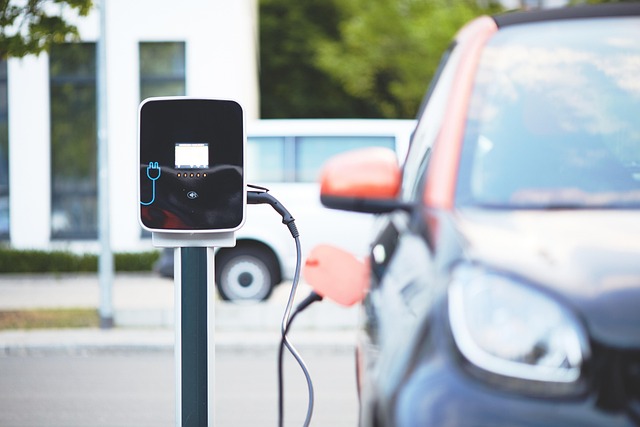Registering Your Car in California: A Comprehensive Guide
Registering a car in California is a straightforward process, but understanding the steps and required documents is essential. This comprehensive guide walks you through the entire registration proces…….

Registering a car in California is a straightforward process, but understanding the steps and required documents is essential. This comprehensive guide walks you through the entire registration process, from gathering crucial information like your Vehicle Identification Number (VIN) for critical vin verification to interacting with the California Department of Motor Vehicles (DMV). By following these clear instructions, you’ll efficiently navigate the registration process without common issues.
- Understanding the California Car Registration Process
- Gathering Necessary Documents for VIN Verification
- The Role of the California Department of Motor Vehicles (DMV)
- Step-by-Step Guide to Registering Your Vehicle
- Common Issues and How to Resolve Them During Registration
Understanding the California Car Registration Process

Understanding the California Car Registration Process
In California, registering a car involves several steps designed to ensure vehicle safety and compliance with state regulations. The process begins with gathering essential documents, including proof of ownership, identification, and insurance. Once these are ready, the next crucial step is the vin verification process, which ensures that the vehicle’s unique identifier (VIN) matches the details on file. This can be done through a mobile vin inspection or by visiting a designated DMV office for a vin inspection.
After successful vin verification, you’ll need to visit a California Department of Motor Vehicles (DMV) office to complete the registration. Here, you’ll pay the required fees and submit all necessary paperwork. It’s important to remember that specific requirements may vary based on your vehicle type and personal circumstances, so it’s always best to double-check with the DMV or consider seeking assistance from a professional for a seamless car registration experience.
Gathering Necessary Documents for VIN Verification

To register your car in California, you’ll first need to gather all the essential documents for VIN (Vehicle Identification Number) verification. This process is crucial as it ensures that the vehicle’s history and authenticity match the information provided during registration. The California Department of Motor Vehicles (DMV) requires a comprehensive set of documents, including proof of ownership, vehicle identification number (VIN), and sometimes additional forms like a bill of sale or lease agreement.
One convenient way to facilitate this process is by utilizing a mobile VIN verifier. These services allow you to quickly and easily obtain the necessary information from your vehicle’s VIN during the inspection phase. Alternatively, you can conduct a traditional vin inspection at a designated DMV location. Either way, having these documents ready will streamline the registration process, ensuring a smoother and faster experience for California car owners.
The Role of the California Department of Motor Vehicles (DMV)

The California Department of Motor Vehicles (DMV) plays a pivotal role in ensuring the safe and legal operation of vehicles within the state. One of its primary responsibilities is facilitating the registration process for new and used cars, which involves several crucial steps. The DMV acts as the central authority for vehicle identification number (VIN) verification, a critical aspect of car registration. This process includes cross-referencing the VIN with manufacturer records to confirm the vehicle’s history, ensuring it has not been reported stolen or had any outstanding issues.
Additionally, the DMV offers various services to streamline the registration experience, including mobile VIN verification and inspection options. These services are particularly useful for busy individuals who prefer a more convenient approach. With the availability of mobile VIN inspection, customers can have their vehicle’s details checked at their convenience, further simplifying the already efficient DMV processes.
Step-by-Step Guide to Registering Your Vehicle

Registering a car in California involves several steps to ensure your vehicle complies with state regulations. Here’s a step-by-step guide designed for a smooth process. Begin by gathering essential documents, including your vehicle’s Registration Application (Form DVF 14), proof of insurance, and a valid driver’s license. Next, perform a VIN verification using official resources to confirm the vehicle’s identity and history; this is crucial for accurate registration.
Once your paperwork is in order, visit a California Department of Motor Vehicles (DMV) office or use their online services to apply for registration. During submission, ensure you have a current emissions test report if required. After approval, obtain license plates and a registration card. Consider using mobile vin verification services for added convenience; these mobile vin inspection tools can streamline the initial documentation process by providing vehicle history at your fingertips, making it easier than ever to register your car in California.
Common Issues and How to Resolve Them During Registration

Even with meticulous preparation, several common issues can arise during car registration in California. One of the primary challenges is vin verification. The unique 17-digit Vehicle Identification Number (VIN) must be accurately confirmed to ensure the vehicle’s authenticity and history. If there are discrepancies found during this process, it could delay or even prevent registration. To resolve these issues, ensure all paperwork is in order and accurate. Double-check the VIN on the title, registration, and the actual vehicle itself.
Additionally, many individuals face problems when dealing with mobile vin inspection services or mobile vin verifiers. While these services offer convenience, ensuring their reliability is crucial. Check for state-approved verifiers to avoid fraudulent activities. Keep all documentation related to any interactions with such services, as it may be required during the registration process. A simple verification through a trusted source can save you significant time and frustration when navigating California’s car registration requirements.
Registering a car in California involves a straightforward process, ensuring your vehicle is safe for road use. By understanding the requirements, gathering the right documents, and following the step-by-step guide, you can efficiently navigate the California Department of Motor Vehicles (DMV) procedures, including crucial VIN verification. Remember to address any common issues promptly to avoid delays in getting your vehicle registered and legally on the streets.







